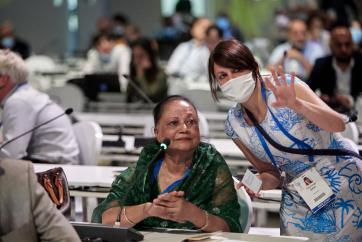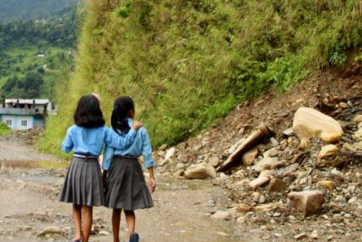|
🗓️ 3-11 SEPTEMBER 2021 |
Register for in-personRegister for virtual |
Harnessing nature-based climate mitigation and adaptation efforts is an essential strategy to overcome the challenges posed by a changing climate. The full potential of the world’s natural carbon sinks and reservoirs that can contribute to a climate-resilient and biodiversity-rich future has yet to be unlocked. This will require strengthening institutional and governance capacity for ecosystem planning and management, as landscapes transform and adapt to climate change. How can healthy ecosystems provide effective solutions for climate change mitigation and adaptation? What is the role of protected and conserved areas to meet the goals set out in the Paris Agreement on Climate Change? Policy and decision-making may require trade-offs to optimise the benefits for biodiversity, climate change and other relevant sectors. How do we ensure that synergies are found and negative trade-offs avoided?
Reducing the impacts of environmental hazards (extreme weather events, floods, etc.) is one of the most critical ways in which to strengthen the resilience of affected communities. Successfully mitigating the risks and consequences helps avoid an environmental hazard becoming a disaster and requires enhanced policy frameworks and institutional capacity. What are the most effective community-based solutions to ensure the inclusion of the most vulnerable? What kind of natural and built infrastructure best reduces exposure to natural hazards and increases socio-economic resilience of people and communities by sustaining local livelihoods?
Related content
Related sessions
| Date | Room | Title | Features | Session type | Themes | Favourite |
|---|---|---|---|---|---|---|
|
Monday 06 Sep 11:30 - 12:30 |
H3 - Oceania-Hawai’i Pavilion | Synergistic Effects of Climate Change + Invasive Species: A Call for RISCC Management |
en |
Exhibition Event |
Climate change Freshwater Landscapes Oceans Knowledge, innovation and technology |
|
|
Wednesday 08 Sep 15:45 - 16:30 |
H3 - Citeo | Open session avec Lactips: « Rethink plastic to preserve environment » |
fr |
Exhibition Event |
Climate change Oceans Knowledge, innovation and technology |
|
|
Sunday 05 Sep 18:00 - 19:00 |
H3 - Ocean and Islands | Climate-driven multi-stressors: impacts on ocean health and potential solutions |
en |
Exhibition Event |
Climate change Landscapes Oceans Knowledge, innovation and technology |
|
|
Saturday 04 Sep 16:00 - 18:00 |
Virtual Channel 6 | Nature-based Solutions Training: using the global standard to achieve positive sustainable change |
en |
Campus Session |
Climate change Knowledge, innovation and technology |
|
|
Wednesday 08 Sep 19:00 - 20:30 |
H3 - Post-2020 Partnership Pavilion | Equity, Ecosystems and Scarcity- The Global Sand Crisis and Infrastructure (Infrastructure and Nature Coalition) |
en |
Exhibition Event |
Climate change |





